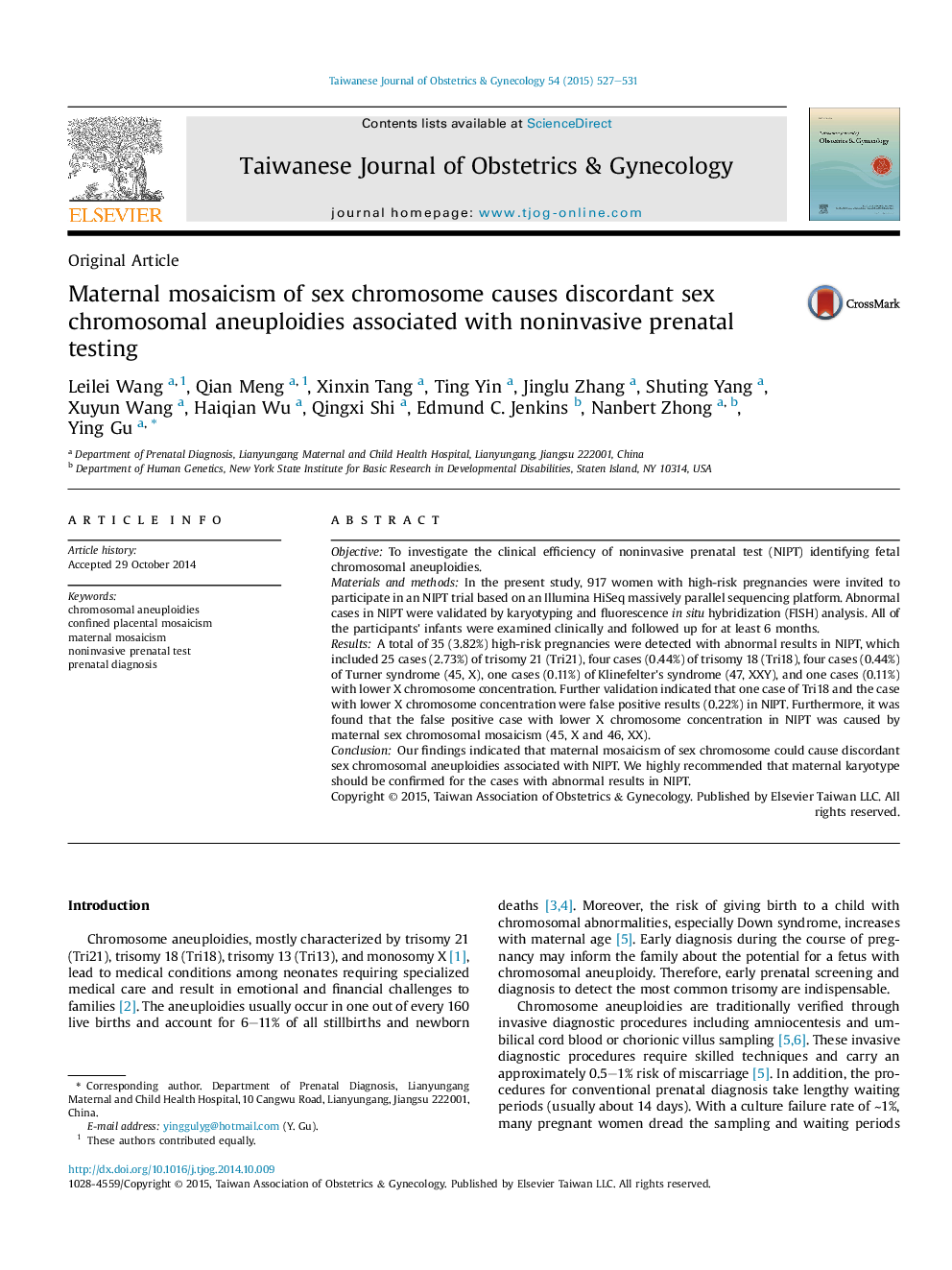| Article ID | Journal | Published Year | Pages | File Type |
|---|---|---|---|---|
| 3975472 | Taiwanese Journal of Obstetrics and Gynecology | 2015 | 5 Pages |
ObjectiveTo investigate the clinical efficiency of noninvasive prenatal test (NIPT) identifying fetal chromosomal aneuploidies.Materials and methodsIn the present study, 917 women with high-risk pregnancies were invited to participate in an NIPT trial based on an Illumina HiSeq massively parallel sequencing platform. Abnormal cases in NIPT were validated by karyotyping and fluorescence in situ hybridization (FISH) analysis. All of the participants' infants were examined clinically and followed up for at least 6 months.ResultsA total of 35 (3.82%) high-risk pregnancies were detected with abnormal results in NIPT, which included 25 cases (2.73%) of trisomy 21 (Tri21), four cases (0.44%) of trisomy 18 (Tri18), four cases (0.44%) of Turner syndrome (45, X), one cases (0.11%) of Klinefelter's syndrome (47, XXY), and one cases (0.11%) with lower X chromosome concentration. Further validation indicated that one case of Tri18 and the case with lower X chromosome concentration were false positive results (0.22%) in NIPT. Furthermore, it was found that the false positive case with lower X chromosome concentration in NIPT was caused by maternal sex chromosomal mosaicism (45, X and 46, XX).ConclusionOur findings indicated that maternal mosaicism of sex chromosome could cause discordant sex chromosomal aneuploidies associated with NIPT. We highly recommended that maternal karyotype should be confirmed for the cases with abnormal results in NIPT.
